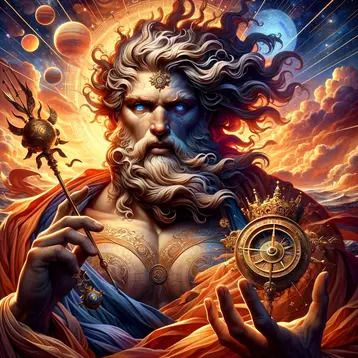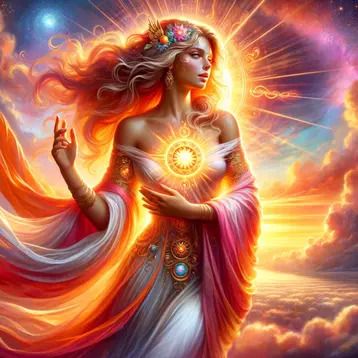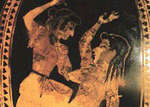
Astraea
Astraea :: The Goddess of Innocence and Justice
Astraea, a deity revered for her purity and justice, held a significant place in Greek mythology. As the daughter of Astraeus, the god of dusk, and Eos, the goddess of dawn, she symbolized the bright and hopeful aspect of humanity.
Astraea's Name and Role
The name Astraea, meaning "star-maiden," reflects her celestial nature and connection to the heavens. In the lore of Greek mythology, she lived on Earth during the Golden Age, a time when humans lived in peace and harmony. However, as the Iron Age dawned, marking an era of wickedness and misery, Astraea chose to leave Earth, dismayed by the growing injustice and corruption among humans.
The Transformation into Virgo
Upon abandoning Earth, Astraea ascended to the skies, where she transformed into the constellation Virgo. This act was symbolic of her role as a beacon of purity and righteousness, watching over humanity from the heavens. Her presence in the night sky serves as a reminder of the lost era of peace and the hope for a better world.
Connection with Dike
Astraea's association with Dike, the goddess of fair judgment, highlights her role in upholding justice and moral integrity. This relationship is mirrored in the stars, where the constellation Virgo, representing Astraea, lies near Libra, the symbol of Dike and justice. Together, these constellations emphasize the ideals of balance, fairness, and moral order in the universe.
The Prophesied Return of Astraea
A central myth concerning Astraea is the prophecy of her eventual return to Earth. It is believed that she will descend from the heavens to usher in a new Golden Age, restoring the world to a state of utopia and ending human suffering. This myth embodies the hope for a return to innocence and justice in a troubled world.
Astraea in Cultural and Astronomical Context
Astraea's influence extends beyond mythology into cultural and astronomical contexts. She is often referenced in literature and art as a symbol of hope, purity, and the longing for a just world. Astronomically, her legacy continues as the constellation Virgo, a prominent and easily identifiable constellation in the night sky.
Astraea Q&A
Link/Cite Astraea Page
Written by: The Editors of GreekMythology.com. GreekMythology.com editors write, review and revise subject areas in which they have extensive knowledge based on their working experience or advanced studies.
For MLA style citation use: GreekMythology.com, The Editors of Website. "Astraea". GreekMythology.com Website, 30 Nov. 2023, https://www.greekmythology.com/Other_Gods/Minor_Gods/Astraea/astraea.html. Accessed 26 April 2024.



